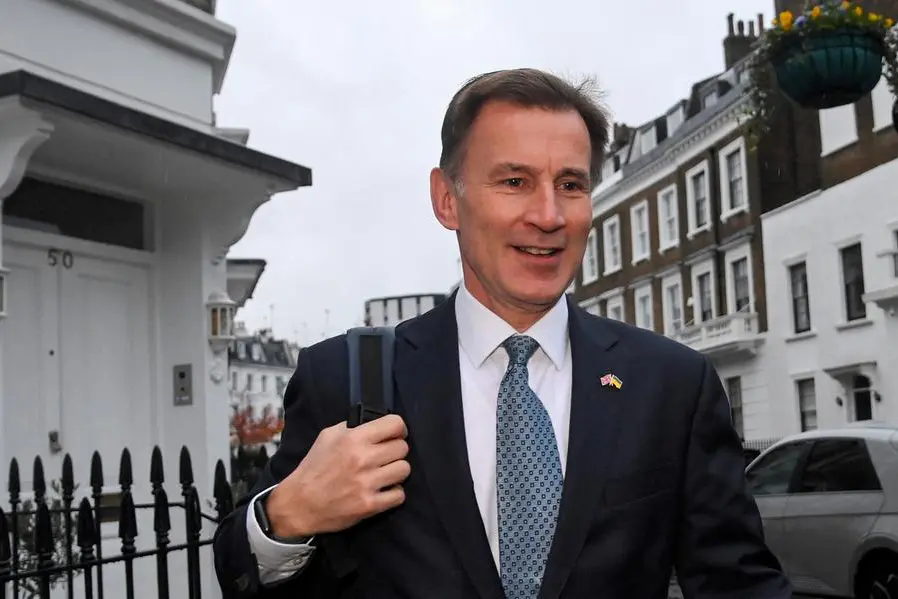PHOTO
LONDON - British finance minister Jeremy Hunt announced a string of tax increases and tighter public spending in a tough budget plan on Thursday that he said was needed after the blow dealt to the country's fiscal reputation by former prime minister Liz Truss.
Hunt told parliament that the economy was already in recession and was forecast to shrink next year but there was no way to avoid painful fiscal medicine to ensure Britain could build on the recent restoration of calm in financial markets.
"Credibility cannot be taken for granted and yesterday’s inflation figures show we must continue a relentless fight to bring it down, including an important commitment to rebuild the public finances," he said.
Hunt announced changes to tax rules that will mean more people pay basic income tax, a lower threshold for paying the top rate of income tax, and a cut in tax-free allowances for earnings from dividends.
He froze until 2028 a threshold at which employers must start to pay social security contributions, meaning companies will have to pay more.
A levy on the profits of energy companies would be increased to 35% from 25% from Jan. 1 until 2028, and a new temporary 45% tax would be imposed on electricity generators, to raise a total of 14 billion pounds next year, Hunt said.
The belt-tightening comes against the backdrop of a weak outlook for the economy.
Gross domestic product is now expected to contract by 1.4% next year compared with a projection for growth of 1.8% in the previous outlook published in March by the independent Office for Budget Responsibility (OBR).
Since then, Britain's economy has come under strain from an inflation rate now above 11%, a slowing global economy and a bout of severe financial market volatility during Truss's brief term as prime minister.
Hunt said the OBR forecasts laid out "starkly the impact of global headwinds on the UK economy".
The OBR forecast GDP would grow by 1.3% in 2024 and by 2.6% in 2025, Hunt said, compared with its previous forecasts for growth of 2.1% and 1.8% respectively.
He said the OBR saw inflation at 9.1% in 2022, up from its March forecast of 7.4%, and at 7.4% next year, up from a previously forecast 4.0%.
Hunt and Sunak have said they will restore investor confidence in Britain after Truss's failed experiment with unfunded tax cuts.
She quit after just 50 days in Downing Street when her policies sent the pound to an all-time low against the U.S. dollar, threatened chaos in the housing market and forced the Bank of England to intervene to prop up the bond markets.
Hunt said the OBR judged that Britain - where high inflation is creating a cost-of-living crisis - is already in recession.
It is the only Group of Seven economy yet to recover its pre-pandemic size, having previously suffered a decade of near-stagnant income growth.
Hunt had warned in the days leading up to Thursday's announcement that he could only slow a rise in borrowing costs by showing investors that Britain's 2.45 trillion-pound ($2.91 trillion) debt mountain will start to fall as a share of GDP.
Thursday's forecasts by the OBR showed that target would be met in the 2027/28 financial year.
Critics have warned against a return to the kind of tight spending controls pursued by the ruling Conservative Party for much of the past 12 years, saying it would hurt already stretched public services and the lives of millions of households, deepening the expected recession in the process.
(Writing by William Schomberg; Editing by Catherine Evans)





















